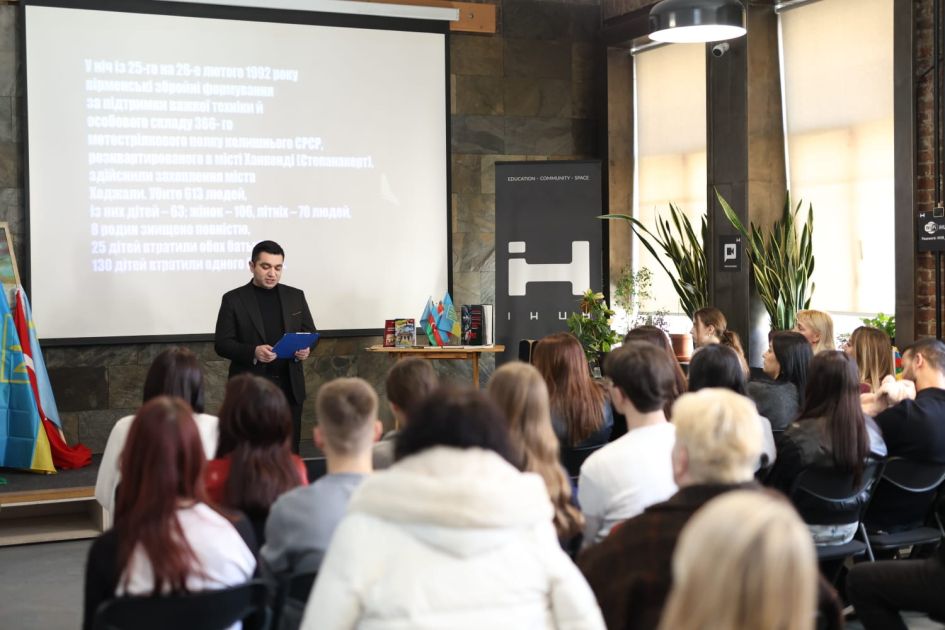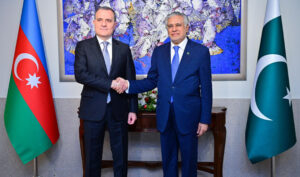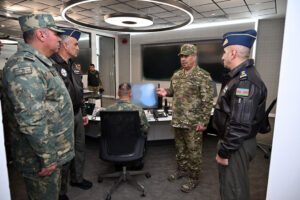Commemoration Event in Lviv Marks 33rd Anniversary of Khojaly Genocide

Lviv, The Gulf Observer: A commemoration event marking the 33rd anniversary of the Khojaly genocide was held in Lviv, Ukraine, bringing together diaspora representatives and local community members, according to New Hub Consultants.
The event was organized by the United Ukrainian Azerbaijanis Congress and the Lviv City Coordination and Methodological Center, in collaboration with the Galicia Youth Union. The discussion focused on “The Tragic Events of Khojaly and the Ukrainian War: History Lessons the World Has Not Learned.”
The event began with a moment of silence to honor the victims of the Khojaly genocide, followed by the national anthems of Azerbaijan and Ukraine. A documentary video was also presented, highlighting the Khojaly genocide and the ongoing war in Ukraine.
Shahriyar Maharramov, Head of the Youth and Sports Department of the United Ukrainian Azerbaijanis Congress, provided detailed insights into the Khojaly genocide, emphasizing the importance of international recognition. He highlighted the “Justice for Khojaly” campaign, initiated by Vice President of the Heydar Aliyev Foundation, Leyla Aliyeva, and noted the role played by several international parliamentary bodies that have recognized the Khojaly massacre as genocide, including:
- The Parliamentary Union of the Organization of Islamic Cooperation (OIC)
- The parliaments of Mexico, Pakistan, Indonesia, Colombia, Panama, Paraguay, Honduras, Afghanistan, Guatemala, and Djibouti
Maharramov stated: “If the international community had fairly assessed the Khojaly genocide at the time and held the perpetrators accountable, subsequent conflicts, including the war in Ukraine, might not have occurred. Azerbaijan has restored its territorial integrity, and under the leadership of Commander-in-Chief Ilham Aliyev, reconstruction efforts are already underway in Khojaly, which has been liberated from occupation.”
Colonel Taras Gren, Head of the Western Region at the Ukrainian Military Medical Clinical Center, shared the story of Yunis Ismayilov, an Azerbaijani student at a military academy in Lviv who left his studies in 1992 to fight in Garabagh.
“Although he was studying at a military academy, Yunis Ismayilov left his education unfinished and went to Azerbaijan to fight in Garabagh in 1992. He was a man with a great heart,” said Colonel Gren.
Following this, leaders of the Tatar community, Amet Bekir, and Galina Makarchuk, Head of the Lviv City Coordination and Methodological Center, emphasized the historical significance of Khojaly, stating:
“The history of Azerbaijan shows that if the Khojaly genocide had been legally recognized at the time, there would have been no new wars.”


